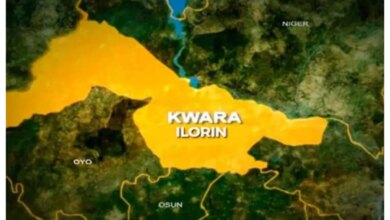MMDAs urged to ensure strict adherence to new spatial planning guidelines


The Ministry of Local Government, Chieftaincy and Religious Affairs has called on Metropolitan, Municipal, and District Assemblies (MMDAs) to fully adhere to the newly launched planning documents to ensure proper spatial development across the country.
Deputy Minister of Local Government, Chieftaincy and Religious Affairs Rita Naa Odoley Sowah, said the Revised Manual for the Preparation of Spatial Plans, Zoning Guidelines and Planning Standards, launched by the Land Use and Spatial Planning Authority (LUSPA), would serve as a vital legal and technical reference for all development planning at the local level.
In an interview on the sidelines at the launch of the Revised Manual for the Preparation of Spatial Plans, Zoning Guidelines and Planning Standards, in Accra, Madam Sowah underscored the importance of the documents, noting that “everything we do as a nation or as a people should be backed by law”.
“These documents are very beneficial because, as MMDAs, we work with developers and communities, and without legal backing, it becomes difficult to sanction unlawful developments, which will guide us on how to plan our districts and communities properly,” she added.
“The revised Spatial Planning Documents are therefore not just mere updates or technical documents. They are tools for empowerment, Planners and Built Environment Professionals, Metropolitan, Municipal and District Assemblies (MMDAs), Consultants, Academia, and all stakeholders involved in the spatial planning process,” she stated.
The Deputy Minister indicated that the documents came at a critical time in the developmental agenda of the country as government deepened decentralization and enriched the capacities of Regional Coordinating Councils and local authorities through government flagship programmes such as the Big Push Programme, Ghana Infrastructure Plan and 24-hour Economy Programme.
“There is an urgent need to equip our Local Government Actors with tools and guidance for smarter, more collaborative, and effective planning. These documents provide a consistent approach to spatial planning nationwide for the development of new areas or the redevelopment of existing ones.
With the revised spatial planning documents now launched, Ghana is reinforcing its commitment to efficient land use, sustainable urban development, and environmental protection for the benefit of all communities.
Madam Sowah urged MMDAs to be proactive in enforcing planning laws to curb indiscriminate construction, especially along waterways and within buffer zones.
“Sometimes you see a development coming up, and though a ‘stop work’ order is issued, construction continues until the building is roofed,” she lamented. “It’s time we stopped that. The Assemblies have the authority to ensure that only permitted developments proceed,” she said.
The Deputy Minister emphasised that assemblies must collaborate effectively between their Works and Development Planning Departments to monitor and regulate physical developments in line with approved plans.
“It baffles my mind when people fill up river bodies and build on them, only to call on authorities for help when floods occur. The time to act is now, the reset agenda is on, and we must stop such developments immediately,” she emphasised.
Component Manager of the Programme for Sustainable Economic Development (PSED) of GIZ Leticia Erny, which partnered with LUSPA in reviewing the guidelines, said the updated documents marked a major milestone in Ghana’s spatial planning framework.
She said GIZ worked closely with LUSPA and other institutions to update the 2011 guidelines through a series of workshops and consultations to incorporate new standards across various sectors, including natural resource protection and environmental management.
“We believe these guidelines will help MMDAs improve their planning, align spatial development with national standards, and better protect natural resources,” she noted.
Ms Erny added that beyond the guidelines, effective coordination, citizen participation, and accountability were essential to achieving sustainable land use and spatial development.
She added that the launch marked an important step in strengthening local governance and ensuring that Ghana’s development followed a coordinated and lawful spatial framework.
DISCLAIMER: The Views, Comments, Opinions, Contributions and Statements made by Readers and Contributors on this platform do not necessarily represent the views or policy of Multimedia Group Limited.
DISCLAIMER: The Views, Comments, Opinions, Contributions and Statements made by Readers and Contributors on this platform do not necessarily represent the views or policy of Multimedia Group Limited.
Source link





